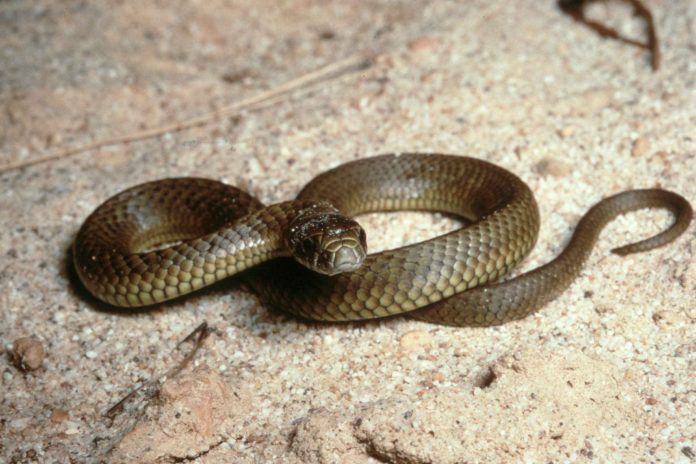By PAUL MILLAR
LIKE the annual opening of the dusty barbecue at the first sign of warmth, snakes have aroused from their winter slumber.
Local snake-catcher Darren Keiller said he had been called to relocate two snakes almost as soon as the temperature started to rise.
Victoria had its warmest day in months on Tuesday with the scale climbing above the mid-20s and almost immediately the veteran snake catcher was receiving calls.
“I had a busy year last year and don’t expect it to be any different this year,” Mr Keiller said.
“The Torquay and Lara areas usually provide me with a lot of work, mostly copperheads and tiger snakes.”
However, his first calls this week were from concerned property owners at Anakie and Mount Duneed after they spotted tiger snakes.
The snake catcher removed them and relocated them five kilometres away.
He has never been bitten in 15 years on the job but knows just how dangerous the reptiles can be.
His advice is simple, “watch where you walk and what you touch”.
Dr Jeff Cave, veterinary officer for the Department of Environment and Primary Industries warned property owners to be particularly wary of bites to livestock, especially horses.
“The severity of effects of snake bite depend on the size and species of the snake, the period since the snake had last bitten prey or time after hibernation, the size of the bitten animal and the location of the bite,” Dr Cave said.
There are a number of clinical signs that frequently occur, but can be inconsistent and variable.
“Animals bitten by tiger snakes often develop muscular tremors, sweating and a staggered gait, and may become unable to swallow and dribble saliva due to paralysis of the tongue,” the vet said.
“Brown snakes often cause a period of increased activity by the victim, followed by sudden flaccid collapse; horses may fall forward landing on their knees.
“From there they collapse, have trouble breathing and can pass away from respiratory failure.”
If an animal receives a small dose of venom it may recover after an illness of one to five days.
Snake bite can be difficult to diagnose at post-mortem since the small puncture wounds and local swelling are difficult to find in a large animal.







